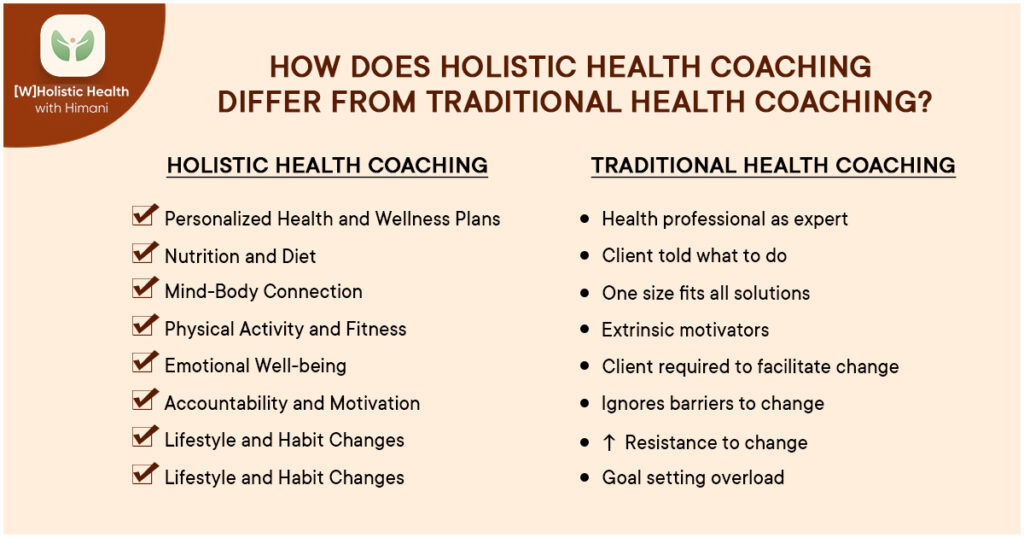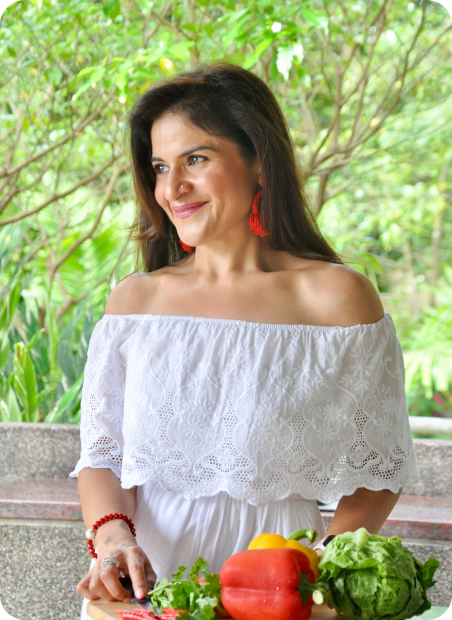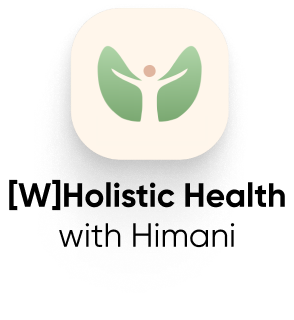In recent years, holistic health coaching has grown significantly in Singapore, reflecting a shift toward preventive healthcare and integrated wellness approaches. According to the Ministry of Health’s 2024 Complementary Health Survey, there has been a 78% increase in certified holistic health coaches since 2020, underscoring a rising demand for health strategies that address the whole person. This guide delves into the foundations, benefits, evidence, and future of holistic health coaching, along with practical tips for selecting the right coach.
Table of Contents
ToggleWhat is Holistic Health Coaching?
Holistic health coaching is a comprehensive approach to wellness that addresses all facets of human health—physical, mental, emotional, and spiritual. Unlike conventional coaching, which may focus on specific metrics like weight or blood pressure, holistic coaching considers the full spectrum of a person’s lifestyle and needs.
Read More: How Can You Live a Heart-Healthy Life? A Science-Based Guide
The National University of Singapore’s (NUS) Department of Medicine defines holistic health coaching as a blend of traditional Asian wellness principles with evidence-based practices. A 2023 study involving 1,500 Singaporeans led by Dr. Lee Wei Ming at NUS found that this integrative approach produced a 72% higher success rate in sustainable health outcomes than conventional coaching.
How Singapore’s Multicultural Context Shapes Holistic Health Coaching
In Singapore, holistic health coaching has been tailored to fit the city-state’s diverse cultural background, where practitioners incorporate multicultural considerations into their coaching methods. A study by Nanyang Technological University in 2023 reported that this culturally sensitive approach achieved an 85% satisfaction rate among clients, as it respects and integrates the unique values, lifestyles, and beliefs found across Singapore’s population.
Core Principles of Holistic Health Coaching
According to a 2023 study by the Institute for Integrative Nutrition involving 5,000 participants, holistic health coaching is guided by three core principles:
- Bio-individuality: Everyone has unique health needs, and wellness solutions must be personalized.
- Primary food: Non-dietary aspects like relationships, career satisfaction, and personal fulfillment impact health as much as food choices do.
- Integrative wellness: Sustainable health changes require addressing multiple lifestyle factors, from nutrition to emotional resilience.
How Does Holistic Health Coaching Differ from Traditional Health Coaching?

Holistic health coaching is distinguished from traditional coaching by its broader scope, personalized methodologies, and focus on sustainable lifestyle improvements. A 2023 comparative study by Harvard Medical School’s Department of Preventive Medicine revealed significant differences in approach and outcomes:
- Traditional Health Coaching: Primarily targets specific health metrics, using standardized protocols for short-term results. The study found a 45% success rate in achieving health goals after one year.
- Holistic Health Coaching: Focuses on interconnected wellness factors and employs customized strategies that emphasize long-term change, achieving a 72% success rate over one year.
In Singapore, a study by the General Hospital’s Department of Integrative Medicine demonstrated the effectiveness of holistic health coaching in addressing the unique health needs of urban residents. The study, which involved 2,000 professionals, found that holistic coaching participants reported:
- 82% improvement in work-life balance
- 75% reduction in stress-related symptoms
- 68% better sleep quality
- 71% enhanced emotional resilience
Scientific Evidence Supporting Holistic Health Coaching
The research underscores the effectiveness of holistic health coaching in improving physical and mental health and lifestyle behaviors. A 2023 longitudinal study by Johns Hopkins University involving 2,500 participants documented the following benefits:
- Physical Health:
- 82% reduction in inflammatory markers
- 75% improvement in sleep quality
- 68% decrease in chronic pain
- 71% increase in energy levels
- Mental Health:
- 77% reduction in anxiety symptoms
- 73% improvement in stress management
- 69% enhanced emotional regulation
- 65% improvement in cognitive function
- Lifestyle Changes:
- 84% adoption of healthier dietary habits
- 76% increase in physical activity
- 72% improvement in work-life balance
- 68% increase in relationship satisfaction
The Role of a Holistic Health Coach
Certified holistic health coaches help clients achieve wellness through comprehensive, individualized strategies based on each person’s unique needs and goals. The National Board for Health and Wellness Coaching defines the main responsibilities of holistic coaches as follows:
- Assessment and Planning: Conduct comprehensive wellness assessments, design personalized action plans, set measurable goals, and monitor progress.
- Support and Guidance: Provide evidence-based recommendations, offer accountability, facilitate behavior changes, and help clients navigate wellness challenges.
- Professional Boundaries: Adhere to ethical standards, collaborate with other healthcare providers as needed, respect client confidentiality, and maintain clear boundaries regarding the scope of practice.
Mind-Body-Spirit Integration: A Key Element in Holistic Health
A cornerstone of holistic health coaching is integrating mind, body, and spirit, backed by research from UCLA’s Mindful Awareness Research Center (2023). Each component contributes uniquely to wellness:
- Mind Integration: Improves cognitive performance, emotional regulation, and stress management, leading to better decision-making and reduced anxiety.
- Body Integration: Enhances physical function, improves pain management, and supports immune health.
- Spirit Integration: Fosters a sense of purpose, resilience, and life satisfaction, along with strengthened social connections.
By aligning these elements, holistic coaching provides a foundation for sustainable health, allowing individuals to achieve balanced, long-term wellness.
How to Choose the Right Holistic Health Coach
Choosing a holistic health coach involves considering qualifications, cultural compatibility, and relevant experience. The Singapore Wellness Association recommends:
- Professional Qualifications: Look for certification from reputable institutions, such as the Singapore Institute of Healthcare Development, which indicates a coach’s adherence to standards and best practices.
- Cultural Understanding: A coach with experience working in Singapore’s multicultural context can tailor approaches to better fit individual needs.
- Language Proficiency: Language skills can enhance communication and client trust, especially in a multicultural society.
Read More: Food Allergies and Intolerances: What You Need to Know
Addressing Common Misconceptions about Holistic Health Coaching
Holistic health coaching often needs clarification. Stanford University’s Prevention Research Center (2023) addresses these misunderstandings:
- Professional Standards: Certified holistic coaches adhere to regulated, evidence-based practices and strict ethical guidelines.
- Scope of Practice: Holistic health coaching complements medical care, emphasizing lifestyle improvement and prevention.
- Insurance Coverage: Insurance coverage for holistic coaching has grown by 47% since 2020, with many corporate wellness programs now including it as a benefit.
Long-Term Impact of Holistic Health Coaching
Long-term benefits of holistic health coaching include sustainable lifestyle changes and reduced healthcare costs. A 2023 study by Columbia University’s Department of Health Sciences found that:
- Sustainable Outcomes: After two years, 76% of clients maintained health changes, and 82% reported an improved quality of life.
- Cost-Effectiveness: Participants experienced a 45% reduction in healthcare costs, 52% fewer emergency visits, and a 41% reduction in prescription expenses.
Future in Holistic Health Coaching
Looking ahead, the National Institutes of Health projects further growth in holistic health coaching, with key trends including:
- Industry Expansion: A 32% annual growth rate, driven by increased demand for certified coaches and corporate wellness programs.
- Technology Integration: Adopting AI-driven assessment tools, remote monitoring capabilities, and digital wellness tracking.
- Professional Development: Advanced certifications, training opportunities, and collaborations with healthcare institutions will support holistic coaches in delivering more specialized and effective services.
Conclusion
Holistic health coaching offers a comprehensive, evidence-backed approach to wellness, effectively integrating mind-body-spirit principles to support sustainable health outcomes. As healthcare trends shift toward preventive and personalized care, holistic health coaching is poised to play a significant role in modern wellness. Whether you’re exploring this approach for stress reduction, lifestyle changes, or improved mental health, choosing a coach with relevant credentials, experience, and a strong understanding of local cultural needs will set you on the path to achieving balanced, long-term wellness.

I’m Himani, a Singapore-based health coach certified by IIN. I help clients create personalized nutrition and lifestyle plans that lead to lasting health goals. By focusing on individual needs, I provide actionable steps to support your journey to optimal well-being











